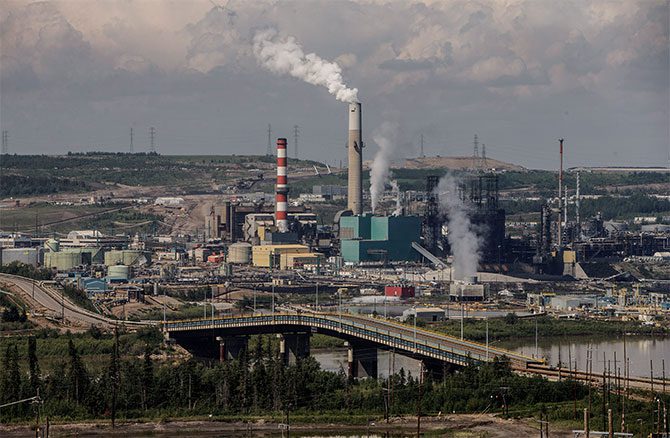Statement by Aly Hyder Ali, Oil and Gas Program Manager
Ottawa | Traditional, unceded territory of the Algonquin Anishinaabeg People – We applaud the Government of Canada for releasing the much awaited framework on the oil and gas emissions cap. However, having a framework is not the same as having final rules in place, which need to be implemented as soon as possible. We urge the federal government to move swiftly and release the draft regulations in the coming months, at the latest by February 2024. We cannot afford any more delays.
Without a strong cap on oil and gas emissions, Canada will miss its climate targets. The oil and gas industry, Canada’s largest and fastest growing source of greenhouse gas emissions, has repeatedly shown its unwillingness to voluntarily reduce its own emissions. The industry, which has made record breaking profits in recent years while fueling the climate crisis, is well positioned to pull its weight, but will not do so without strict regulatory oversight.
Although the framework marks an important milestone for the federal government’s climate plan, and makes Canada the first national jurisdiction that is working to implement an emissions cap to limit oil and gas pollution, it is far from perfect. The design of the rules must be strengthened:
-
The framework’s current 2030 target does not actually force the oil and gas industry to do its proportionate share to reduce emissions. This is deeply unfair to other industries that have already made impressive emissions reductions, while oil and gas companies have just kept polluting. For the target to ensure oil and gas companies are doing their part, it must increase to at least align with Canada’s national emissions reduction target, which is a 40–45 per cent reduction from 2005 levels by 2030. The International Energy Agency wants governments to go further, and has called for emissions from oil and gas companies to decline by 60 per cent by 2030 to keep global temperature rise to below 1.5 degrees.
-
The inclusion of offsets and free allocations in the framework is also concerning. Emissions reductions must come from oil and gas companies, not purchased from projects elsewhere. The government should not distribute free allocations. Instead, emissions allowances should be auctioned off, with the revenues generated being used by the government to fund climate solutions in other sectors. The federal government must ensure that oil and gas companies are not allowed to use these flexibilities as loopholes to shirk their responsibilities.
-
We are also concerned that the proposed decarbonization fund will allow companies credit for speculative reductions from future technologies or will be used as a compensation mechanism to reward the oil and gas industry for meeting its responsibilities. This fund should not replace actual emissions reductions.
The emissions cap framework will likely be attacked by oil and gas companies and some provincial governments, including Alberta. The framework as proposed is already a compromise. The alarmism from the oil and gas industry and provincial governments cannot be used to further weaken the emissions cap before it is implemented. The federal government must stand firm in the face of the unreasonable opposition it will inevitably receive.
For example, the Government of Alberta has demonstrated time and time again that it puts polluter profits ahead of any effort to reduce fossil fuel pollution. It is because of its failure to protect Albertans and Canadians that the federal government is forced to step in with an oil and gas emissions cap.
With COP28 still underway in Dubai, this emissions cap framework sends a strong signal that the federal government is serious about holding the oil and gas industry accountable for its ever increasing pollution. However, to be fully aligned with Canada’s climate commitments, the federal government must strengthen these rules and bring the regulations into force as soon as possible. A long delay between the framework and draft regulations will only allow oil and gas companies to continue polluting, increase the chances of further climate catastrophes and further reduce Canada’s chances of meeting its climate targets.
ABOUT ENVIRONMENTAL DEFENCE (environmentaldefence.ca): Environmental Defence is a leading Canadian environmental advocacy organization that works with government, industry and individuals to defend clean water, a safe climate and healthy communities.
– 30 –
For more information or to request an interview, please contact:
Allen Braude, Environmental Defence, media@environmentaldefence.ca






